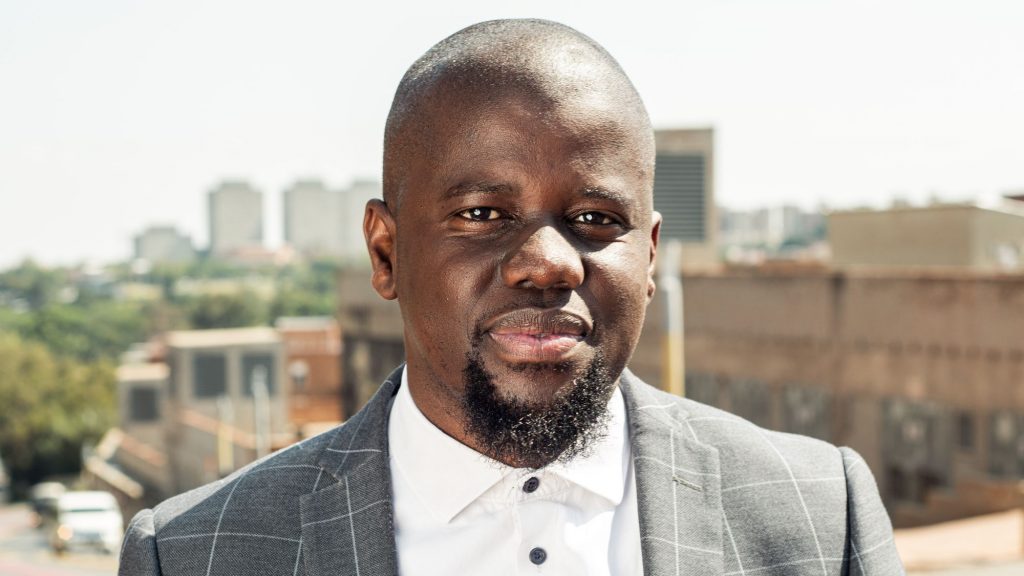South Africa’s esports scene is set for a major showdown as Hyprop and MTN introduce SHIFT COD, a Call of Duty tournament forming part…
Healthtech can learn from Africa’s fintech revolution

Founders Factory Africa chief executive Bongani Sithole looks at what the healthtech industry can learn from Africa’s fintech revolution.
Covid-19 had a profound impact on the globe, leading to changes both seismic and small in how we live our lives. The pandemic has also fuelled a substantial increase in health and biotech investment across the globe.
Biotech continues to gain traction, with Bio Space predicting in April 2022 that the world’s biotech market should be worth about $3.44 trillion by 2030, from $852.8 billion in 2020. This prediction suggests a compound annual growth rate of 17.8% between 2021 and 2030. Furthermore, the African healthcare market is expected to be worth $259 billion by 2030.
Of note is the number of healthcare deals incrementally increasing between 2020 and 2022. Specifically, deals in the pharmaceuticals, biotech and life sciences verticals have shown modest acceleration since 2020 – rising from one such deal in 2020 H1 to a dozen in 2022 H1.
Keeping this in mind, it is valuable to consider what levers drove fintechs on the continent, whether these levers apply to the healthtech sector, and how they may affect the opportunities that exist for the continent’s healthtech founders.
Fintech’s levers of success
In fintech, innovation has been driven by finding contexts and challenges that can be solved within tight infrastructure restrictions. As a result, African fintechs have been able to increase financial inclusivity by offering services that bring previously untapped users into the financial system.
Whether through payment gateways, innovative loans, or digitally-enabled points of sale, they’ve created products and services that cater to the wants and needs of their customers in ways that traditional financial players could not.
Fintech’s success has been a net positive for the African tech ecosystem and its end users. While fintech has been able to innovate within tight technological environments, the telecommunications infrastructure that existed at the time (and which has further matured) is a vital lever in the vertical’s success.
Flutterwave is an example of a company that has enabled other companies to transact on top of this infrastructure, with customers only a mobile device away from being able to participate, creating viable ways for capital to move within the ecosystem.
The second lever of fintech’s success is services. These are companies that have built solutions on top of existing infrastructure, with the mobile money revolution an example of this service lever. Without it, companies like M-Pesa and Mukuru would not have succeeded since the velocity of capital that has supported these ventures would not be possible.
Does healthtech have the same levers to pull as fintech?
When dealing with any form of technology, there are constraints and opportunities. When comparing healthtech and fintech, for example, it’s clear that infrastructure plays a vital role in the healthcare sector, as do services but, the deeper you look, the more nuanced healthtech can be due to the nature of the problems it intends on solving compared to fintech.
Often, fintech plays an important role in a healthtech solution but, ultimately, you are addressing a healthcare constraint in a given market.
So what about the infrastructure? Compared to fintech, healthtech and the health sector more broadly requires deeper infrastructure investment since healthcare at its core is actualised in the user’s physical experience.
Healthcare infrastructure, using a broad definition, includes not just clinics and hospitals but the beds that patients sleep in, chairs, medical equipment, ambulances, and even tools for medical professionals to do their work.
Skilled staff are also vital, with these skills taking years to cultivate. I have not even mentioned pharmaceuticals, which can take years to successfully develop and receive regulatory approval. These can all be constraints. While fintech is very much digital – healthtech is more deeply connected with the physical world.
Moving onto services, three thoughts come to mind about how healthtech can significantly impact the continent’s different markets for the better:
- Providing access to cheaper healthcare.
- Access to healthcare in your pocket, such as telehealth (which Covid-19 advanced significantly).
- How technology can play a role in bridging the skills gap and helping medical practitioners do more with fewer resources
Based on our own experiences at Founders Factory Africa, we know these are problems healthtech can solve, with its ability to improve the lives of users.
In our portfolio alone, Viebeg is enabling hospitals to order medical equipment without paying for it upfront. Neopenda has developed a product – the neoGuard – that is a clinical vital signs monitor for infants and other patients in resource-constrained areas.
VitruvianMD seeks to solve the skills gap that exists in many African countries through building low-cost camera technology that instantly digitises any analogue microscope. When combined with AI, it enables the delivery of predictive diagnostics in various pathological fields anywhere, even in the most remote locations.
Healthtech can be as successful as fintech, especially when innovation is applied in ways that solve pain points of health users on a daily basis. Yet, we must be careful to conflate healthtech’s success as inevitable.
For that to happen, we need to have a clear understanding of the constraints facing healthtech. While it may share similar levers to fintech, these levers need to be finessed in ways that acknowledge the unique challenges facing the broad African healthcare sector.
- Bongani Sithole is the chief executive of Founders Factory. The views and opinions expressed in this article are those of the author and do not necessarily reflect the views or positions of Ventureburn.

